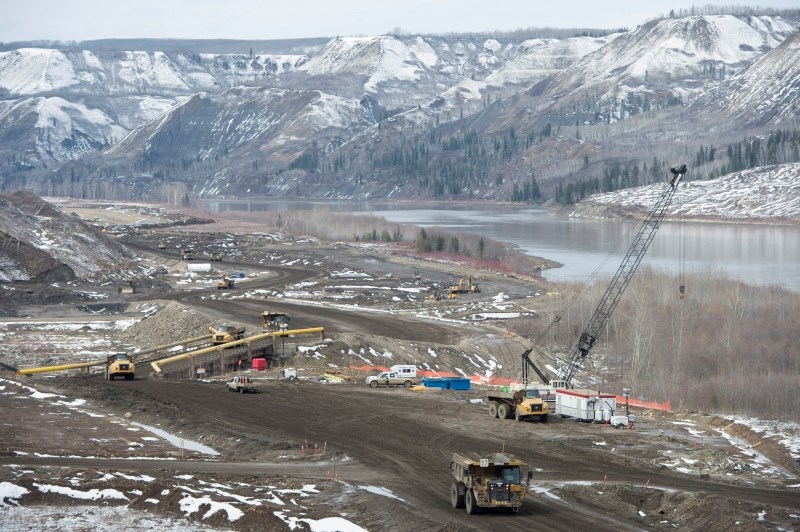As should surprise no one, prices for alternative energy sources are dropping like a stone through water.
But B.C. Hydro, which has an institutional bias to produce power from big dams, doesn’t like to acknowledge this reality. It overstates the costs of alternative sources of power over and over again.
This disturbing fact is highlighted in the B.C. Utility Commission’s preliminary report on B.C. Hydro’s costly Site C dam project, which the BCUC was requested to investigate by the provincial government.
In the report, the BCUC notes that B.C. Hydro uses “apples to oranges” comparisons when presenting the costs of delivered power from alternative sources such as wind, solar and battery storage to those of the delivered costs of power from the $8.8-billion Site C project.
The BCUC goes so far as to say that the approach Hydro takes in comparing costs “distorts” the results, a distortion that is amplified by a failure to account for falling prices. Which raises an important question: Is B.C. Hydro openly and honestly considering decreasing prices and rising efficiencies for energy from all renewable sources?
The BCUC isn’t convinced B.C. Hydro is. That’s a disturbing finding for all of us who care not only about the escalating costs we pay for electricity but about the tremendous social and ecological costs associated with the Site C project.
The Site C dam would trash some of BC’s most productive farmlands — lands capable of growing enough fruit and vegetables to meet the dietary needs of one million people a year.
It would wipe out biologically rich forests, wildlife and wetlands. And it would permanently destroy First Nation lands, amplifying the costs that the region’s first peoples have already endured from the construction of B.C. Hydro’s W.A.C. Bennett and Peace Canyon dams.
As someone who has strived to protect our province’s rapidly diminishing natural world for decades, and as a hydro ratepayer and taxpayer, I believe we need a transparent accounting of all renewable-energy options, not one accounting that skews the books in favour of one project that B.C. Hydro and the previous provincial government so obviously wanted.
It is troubling that B.C. Hydro appears largely uninterested in exploring the potential of power from anything other than major hydroelectric dams.
As one example, what about the potential of “pumped storage” — a power source infrequently talked about?
Pumped storage involves pumping water from low points to high points, then releasing the water to generate power at peak-demand hours.
The obvious benefit is that it provides power when it is needed most, with a net efficiency of 80 per cent or higher after the energy consumed by pumping is factored in.
In 2010, the consulting firm Knight Piesold submitted a report to B.C. Hydro identifying nearly 200 candidate sites for pumped storage on Vancouver Island and the Lower Mainland alone. Each site was capable of generating roughly the equivalent power of one-half to one Site C dam.
The consultant’s report noted that the projected costs had plummeted by as much as 70 per cent since B.C. Hydro commissioned a similar study in 1977.
The 2010 study also contained a disturbing inference — that B.C. Hydro had essentially ordered a quick and dirty study that it had zero interest in seriously pursuing.
The consultants noted that: “This study was limited in its scope based on the tight timeline associated with the deliverables, with the entire study being completed in less than six weeks.” That’s right, our public hydro provider gave the contractor 42 days to come up with an answer, while B.C. Hydro was spending tens of millions of public funds to advance its Site C project.
All energy projects carry ecological costs. But as we strive to address climate change by greening our overall energy portfolio, we need open, honest, fair discussions about what all our energy options are.
As the BCUC enters its public-consultation phase in advance of submitting its final report to the provincial government on the Site C project, both the commission and the provincial government need to hear loud and clear from the public that all renewable-energy options are on the table, not just one extremely expensive and highly destructive project.
Vicky Husband is an Order of Canada recipient who has campaigned for environmental protection for 40 years.



